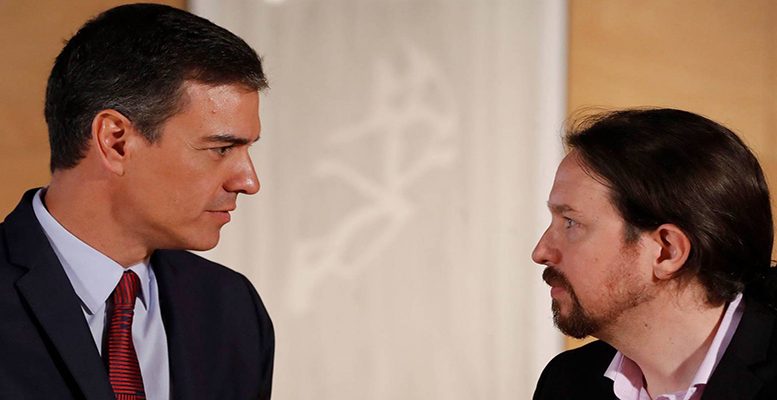Ana Fuentes | Spanish politics has settled on a disturbing calendar. This week the government of the social democrat Pedro Sánchez must clarify whether he will reach an agreement with Unidas Podemos or if he will call elections on November 10. It would be the fourth general election in five years. Time plays against and the feeling of uncertainty weighs more and more each day.
The Socialists have been blaming Unidas Podemos -a coalition of the party founded by Iglesias and the United Left (IU)- for the political blockade all summer. The formation led by Pablo Iglesias blames the government. They do not advance, they distrust each other. The fatigue and perplexity is beginning to be noticed among voters: how is it possible that two parties that in theory share many principles could not overcome their differences and seize the opportunity to govern?
It is no secret that both politicians are being subjected to many pressures, both external and from their own party colleagues. Within the PSOE some are more willing to make concessions, fearing that new elections will cause a significant level of abstention among left-wing voters. Other socialists, however, prefer to call elections for November 10 now, and not give in to Podemos, which maintains laxer stance towards Catalan separatists. This autumn, demonstrations are expected when the Supreme Court hands down the sentences for the Catalan leaders in prison for their role in Catalonia’s failed 2017 independence bid.
Podemos, which in the last months has suffered tough, internal battles, accepted the socialists express veto of its leader in any government. They complain about the government positions offered by the government and ask for ministries or competencies with weight and budget, to be able to carry out policies, and not just be reduced to a symbolic role.
Meanwhile the risk of recession is looming. Spain will grow this year by 2.2% but remains hampered by debt and high unemployment (more than 14%, way above the EU’s average). For now, the country is growing although domestic demand is cooling. And complicated times are coming since Spain’s three main trading partners (Germany, United Kingdom and Italy) are going through a storm. The fourth economy of the euro will be one of the hardest hit by a no deal Brexit. Let alone that it will also suffer the same as its EU partners in a trade war between the United States and China. Lack of clarity in politics certainly does not help.
Unless political parties in Spain assume the new political, constitutional reality of the 21st century, the country will not move on. Bipartisanship is old-time politics. Lawmakers need to forge alliances and accept coalitions.





